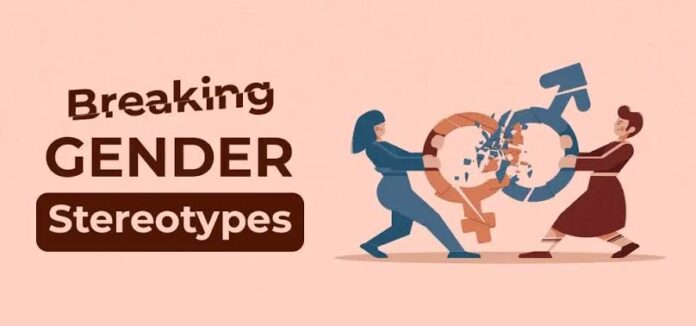
Nigerian Women in the Eye of a Misogynistic Press: A Call for Action, by Rahma Oladosu
Despite the realities of contemporary society, the traditional functions of the media include to inform, educate and entertain. As time passed by, the roles of mobilisation, setting agenda and moulding public opinion were added to the profile of the Press.
The role of watchdog was also later added to the Press and it became the fourth estate of the realm. It then became the duty of journalists to hold leaders accountable to the people. The watchdog role included and still includes keeping an eye on all the
segments of the society to make sure everyone is playing their roles and contributing their quota to the betterment of the entity.
So, aside from informing, educating and entertaining the populace, exposing wrongdoings in any segment of the society is also the duty of the media.
But since the journalists too are human beings who are likely to misuse the power the society has given them, we must therefore keep an eye on them to make sure they don’t step out of line and their conduct and operations are governed by certain rules, laws, ethics and even moral codes. Someone also has to watch the watchdog so he doesn’t derail.
A situation whereby the pen which is mightier than the sword is being used to stereotype Nigerian women and paint them in bad light when it is supposed to be helping to advance the frontiers of gender equality and women empowerment, therefore calls for concern.
The Press is portraying our women as one dimensional and over sexualised. They are portrayed as people who are meant to talk less than men and have fewer opinions on issues that surround them.
It has been proven in over 100 countries that 46 percent of news stories, in print and on radio and television, consistently uphold negative gender stereotypes, while only six percent highlights gender equality. The media plays a major role in fixing the gender stereotypes that influence how we think and act.
Gender stereotypes are common in Asia and Africa, making it difficult for women to play equal roles in the workforce.
Recently, a trending video on social media, especially on Whatsapp groups, claimed that Nigerian women are the most unfaithful in the world.
If one were to do a quick google search on this, they would find many credible newspapers, blogs, and media sites with banner headlines promoting this negative and false story.
A comprehensive keyword search on the internet by the PRNigeria fact-check desk proved that the claims in the story were false and misleading.
While the original report was first published in 2012, it is shocking to still see it trending in 2023. The fact that it came back this year and a lot of our media houses feasted on it is a gross indictment on our professionalism, credibility, thoroughness and attention to details. This is because a simple due diligence would have shown that the story was an old falsehood that should have been ignored.
The gatekeepers of those newspapers slept on the job and the outcome has been embarrassing so far.
Another reason the story was published without appropriate vetting could be because the media ecosystem in Nigeria seems to be wired against women in such a way that anything that is targeted at harming the integrity of the womenfolk is given priority as against a material that is meant to protect them. We can’t even say it is because we have less female gatekeepers than men since, surprisingly, some of the newspapers that published the story did so with the byelines of female reporters!
The overwhelming majority of Nigerian women are angels in human skin actually. They are beautiful and dutiful wives. They are equally loving and caring mothers. They are the best set of women anyone can find. It is therefore unfair for them to be scandalised and generally labelled with infidelity.
Many Nigerian women prioritise their families and care greatly about what society thinks of them. Only a very negligible number would take the risk of damaging their family’s reputation, especially their children’s, for a fleeting moment of pleasure.
Again, to Nigerian women, family values are highly important. Even the minority that cheats tend to keep it extremely secret. So, it is quite puzzling that Nigeria ended up having the highest percentage of unfaithful women in the world, according to that fallacious report.
The world population review even reconfirmed the survey in its 2023 infidelity rating by country and Nigeria was not on the list. So, the Nigerian angle of the story is completely false.
As an important factor in the promotion of gender equality, the media can boost the image of women both within the working environment (in terms of employment and promotion of female staff at all levels) and in the representation of women and men (in terms of fair gender portrayal and the use of neutral and non-gender specific language).
As journalists and writers who are interested in the truth, time has come for us to step up and take action to stop this terrible stereotype. You don’t have to be a woman, you only need to be a human being to know this is wrong and it has to stop!
Join the crusade! Stop the stereotype!
Rahma Olamide Oladosu, Staff Writer with PRNigeria

































